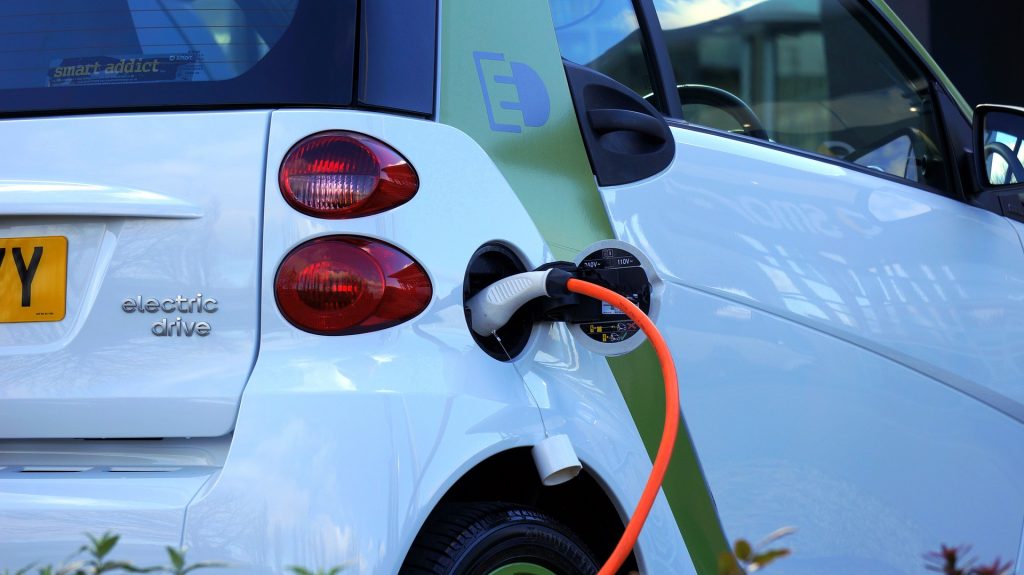3 min read
Honchō Scoops Up Two UK Search Awards!
It’s official, we've added not one, but two shiny trophies to our awards cabinet! We’re over the moon to share that we’ve triumphed at the UK Search...
With electric cars now in the mainstream, automated vehicle technology coming along in leaps and bounds and ideas for fully connected driving networks beginning to emerge, the next generation of the automotive industry is in sight.
In the not-too-distant future, long gone will be the days of having to drive your car. Instead you can focus on using the computer chip installed in your brain to watch videos of cyborg-cats being terrified at the sight of future-cucumbers (look it up.)
With all joking aside, recent developments in the automotive industry have signalled the upcoming growth of electric vehicles and the shift towards a fully automated and connected driving experience.

Before we can go fully electric, we need a fully functioning infrastructure designed to support the charging of millions of electric cars. There are currently over 13,000 charging connectors found at over 4,000 locations across the UK.
However, if the Government’s agreement with the Clean Energy Ministerial (CEM) is met and by 2030 electric cars make up 30% of the market share, there may be a problem.
Serious changes need to be implemented to ensure that the National Grid can handle charging hundreds of thousands of cars at once. This could mean creating a dedicated network for charging electric vehicles, or it could simply be an offshoot of the main power supply.
Not only will our roads be ready for the electric revolution, fully connected driving networks may also be implemented. TomTom and Cisco have partnered up to develop an advanced traffic network using information from Cisco’s data collection technology. Using Cicso’s Internet of Things system, the cloud-based network aims to connect drivers with the roads themselves.
Combining this interconnected road network with self-driving vehicles may well mean that driving a car becomes the thing of the past.
Self-driving cars are a hot topic in the automotive industry. Some think it’s the future whilst others grimace at the thought of letting a ‘robot’ hold their lives’ in it’s (figuratively) cold metal hands.
The Driven group are planning to test automated cars in the UK in 2019, heralding the first driverless car to be used on our motorways. Backed by the Government, they’re also aiming to introduce a fleet of self-driving cars between London and Oxford, transmitting data to each other about potential hazards.
Autonomous cars are even more likely to hit the roads with the Chinese company Baidu making their open source self-driving software readily available through their Apollo program.
Dubbed the ‘Android of the autonomous driving industry’, their software is highly accessible – one Californian company turned a Lincoln into a basic autonomous vehicle in only three days!
This open-source software gives a strong base for other companies to work off of, meaning more time can be dedicated to fleshing out the technology rather than creating it from scratch.
The future of the automotive industry lies with electric cars. Costing less in the long run and with an extremely reduced carbon footprint, vehicles that use an electric motor rather than an internal combustion engine are gaining more traction in the market.
For example, 2016 saw 2 million electric car sales worldwide. A big step from the hundreds sold 11 years earlier in 2005 and doubling from 1 million in 2015. Is this the beginning of the end for petrol and diesel engines? It very much looks that way.
Potentially the biggest news in the phasing out of normal engines, France has announced a ban on the sale of petrol and diesel engines by 2040. This may be a hard task as around 95% of the market in Europe is made up of fossil fuel vehicles.
France are following the example set by Norway, the Netherlands, Germany and India, all of who plan to switch to electric vehicles within the next 17 years. Electric cars accounted for just 0.6% of new car sales in the EU, with Norway being the leader with electric vehicles holding a market share of 15.7%, showing that some countries are already dedicated to a sustainable future.

The day before this ban was announced in France, Volvo declared that from 2019 they would no longer produce models that run only on petrol/diesel. Let that sink in – one of the largest car manufacturers in the world is ending the production of fossil fuel engines in just two years time.
A development that’s a bit closer to home: the London Taxi Company’s Coventry factory opened its doors in March, starting production on the TX5 – an electric black cab. This modern-day take on an iconic vehicle, typically spotted zipping around London, marks the UK’s first car factory that only produces electric vehicles.
This is a massive step towards the soft goal of a 30% market share for electric cars by 2030 agreed by the CEM and the Government. Not only has this pushed the automotive industry closer to a more sustainable and eco-friendly future, hundreds of jobs have been created.
If the recent developments in electric cars, automated driving systems and an interconnected road network are anything to go by, then the seeds of the automotive industry’s future have been sown. As far off and unattainable these advancements may seem, electric cars using GPS and traffic updates to drive themselves along the roads may well one day be a common sight.

If you’ve found this blog post useful please Share it.
To talk to one of our team please call 01438 870 220 or email hello@honchosearch.com

3 min read
It’s official, we've added not one, but two shiny trophies to our awards cabinet! We’re over the moon to share that we’ve triumphed at the UK Search...

5 min read
Understand ecommerce attribution models which attribution models can maximise your marketing efforts and ROI.

3 min read
Explore how social commerce is changing the way we shop online, blending social interactions with digital commerce for a seamless buying experience.